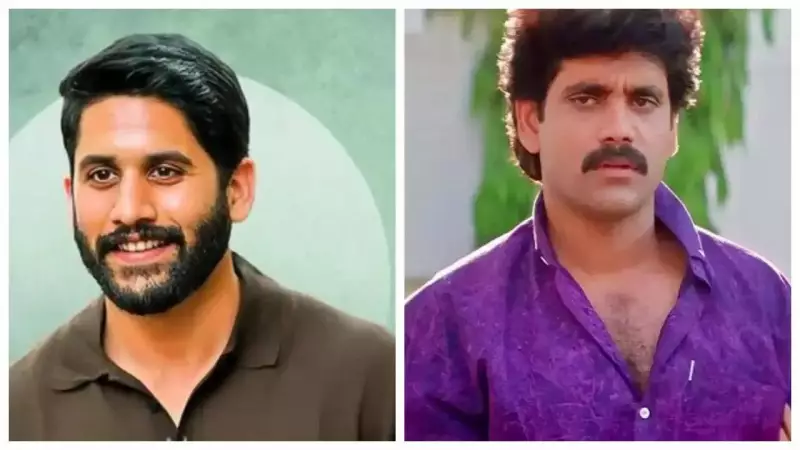
In a candid revelation that has sent waves through the Telugu film industry, actor Naga Chaitanya has finally addressed the elephant in the room that fans have been whispering about for years. The young star recently confessed that he has never attempted to recreate his father Nagarjuna's legendary chain-breaking scene from the 1990 cult classic 'Shiva' - and he has compelling reasons for this deliberate choice.
The Legacy of an Iconic Moment
The original scene from Ram Gopal Varma's groundbreaking film 'Shiva' features Nagarjuna in a powerful moment where he breaks a chain with his bare hands, symbolizing rebellion and strength. This single scene became etched in the minds of Telugu cinema lovers and remains one of the most iconic moments in Indian film history.
"Some things are sacred and should remain untouched," Chaitanya explained during the conversation. "That scene belongs to my father and to that particular era. It wouldn't feel right to recreate it."
Respect for Originality and Legacy
The actor, who has been carving his own path in the industry with films like 'Love Story' and 'Thank You,' emphasized the importance of creating original content rather than riding on past glories. His decision reflects a mature understanding of cinematic legacy and the weight that certain iconic moments carry in film history.
"Every generation has its own iconic scenes and moments," Chaitanya noted. "Rather than recreating what's already been done perfectly, I believe in creating new moments that today's audience can connect with."
A Father's Influence and Individual Identity
Nagarjuna's performance in 'Shiva' not only redefined Telugu cinema but also established new standards for action sequences in Indian films. The movie itself marked a turning point in how youth-centric stories were told, with Ram Gopal Varma's innovative direction changing the landscape of regional cinema.
Chaitanya's revelation highlights the delicate balance that star children often navigate - honoring their legacy while establishing their own unique identity. His conscious decision to avoid comparisons with his father's most famous scene demonstrates both respect for the original and confidence in his own artistic journey.
The actor's stance has garnered appreciation from both fans and industry veterans, who see it as a mark of genuine respect for cinematic history while embracing contemporary storytelling methods that resonate with today's audience.






